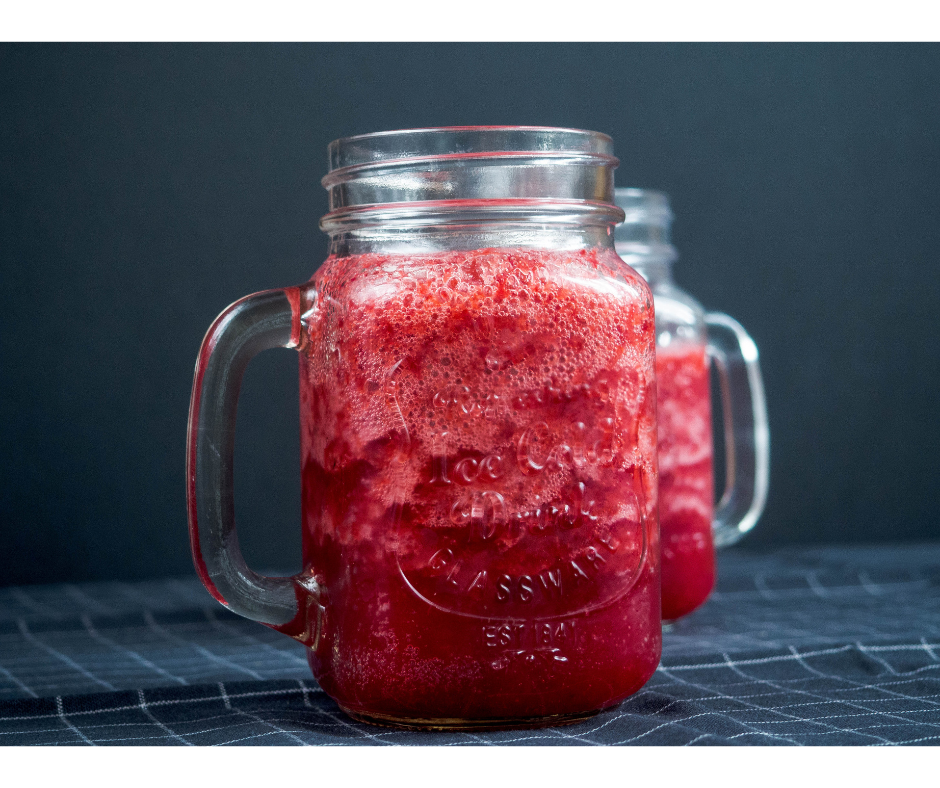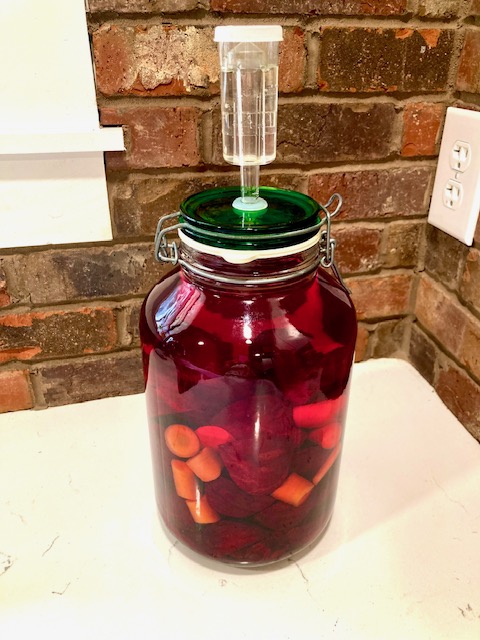I’ll start by saying, if you missed the previous post on general beetroot research, you should check that out. The raw benefits of beets are amazing. From nitrates, to betalains, to anti-cancer and anti-oxidant abilities; beetroot packs a punch! In this post we will be searching through what the research says specifically on the narrow focus of fermented beetroot. Because I’m doing a recipe on beet kvass coming up, I want to make sure we have some great research behind us for the how and why beet kvass is so fantastic. Without further ado, let’s look at the amazing fermented beetroot juice research!

Beet Kvass History
You know me, I always love to start with the history! Finding the long and rich history in so many of the ferments one can make always enhances the journey of learning, creating and consuming ferments. Beet kvass is actually not quite an accurate description of the fermented beet drink. Well, kind of. Let me explain. Kvass originally started as a fermented rye drink in Russia around the 16th century. So what’s up with the “beet” kvass? Well let’s go next to something from Ukraine called borscht. This is actually a soup that is made with something sour and something sweet. Often times the sour was beet sour, also known as fermented beet juice. Borscht has morphed into many different varieties depending on the region, but in it’s original form, it always included either fermented beets or fermented beet juice.
Fermented Beetroot Juice Research
If I was originally concerned there wouldn’t be enough amazing fermented beetroot juice research, my fears were set aside as soon as I started digging. There are so many research papers on various aspects of fermented beet juice that I am definitely having to pick and choose what to talk about.
Fermented Beetroot and Diabetes
Let’s start with diabetes. According to this research article, LABS (lactic acid bacteria) need to colonize the gut in order to make a difference on the diabetic disease. This article discussed the specific LAB Lactobacillus spp. These are the categories that are required for a robust LAB to be effective in regards to diabetes:
- Ability to survive the acidity and bile activity of the stomach and intestines
- Digestive enzyme resistance
- Help food solubility
- Restore mucosal lining
- Create enzymes and vitamins that work to inhibit diabetes
- Ability to fight bad microorganisms
- Inhabit and grow in the human intestinal tract
- Attach to intestinal wall
The results in these categories were outstanding for the LABs studied. They met all the requirements with flying colors. In conclusion, the article stated that “consumption of beetroot juice improves stimulus onset and a signaled response in type-2 diabetes.” Here are some of the overall benefits of fermented beetroot juice:
- Improved metabolic activity
- Decrease in food intolerance
- Antioxidant potential/properties
- Added benefit of increased shelf life of the food source
These are all wonderful benefits even for those of us who don’t struggle with high blood sugar!

Fermented Beetroot Juice
I know, this heading is very similar to the last one. However, this research paper specifically looked at fermented beetroot juice, not a combo (beets and juice) or just the beetroot itself, as in the last paper discussed. In this article, organic versus conventional beets were compared, as well as fermented beetroot juice. The results revealed that while there were areas in which the categories didn’t differ, the anti-cancer effects were markedly higher in the organic fermented beetroot juice when compared with the other groups.
Moving on to research done on rats. This study revealed a vast increase in antioxidant capabilities while on fermented beetroot juice. In addition, the rats were given some harmful substances to simulate oxidative stress and a decrease in metabolic abilities. The ones taking fermented beetroot juice were able to clear the contaminant from their bodies and combat the harmful effects much better than the control group.
Finally, this research article actually isolated two different LAB strains from fermented beetroot and ran tests to see how beneficial the bacterial strains are. Both LAB strains did great when compared to the list of requirements needed to be a beneficial probiotic bacteria. One strain especially did well with antibacterial properties against 4 different pathogenic bacteria. They produced a great amount of niacin, which is a B vitamin. One interesting thing to note is that the great properties created by these bacteria were very temperature dependent. The recommendation was to really watch carefully for the signs of an active and robust ferment as well as keeping an eye on the thermometer.
Where To Go From Here

So, now that we have two posts on regular beetroot research and amazing fermented beetroot juice research, what now? In an upcoming post, I will be sharing exactly how to make your very own beet kvass (fermented beetroot juice). So stay tuned! In the mean time, get more beets in your diet any way you can. Here are a few of my favorite ways to eat both conventional and fermented beets.
- Throw them in with your other vegetables when putting on a pot roast.
- Lightly steam them with your other veggies
- Do a mixed vegetable roasted sheet pan including beets
- Shred and add on to salads
- Or my personal favorite way to eat beets…beetroot falafel!
Additional Resources:
- A Brief History of Fermentation and Why This is Important
- The Science Behind Fermentation and it’s Benefits
- The Importance of Time Tested Fermenting Equipment
- The Best Fermenting Equipment To Use
- Discussion on Ferments Exposed to Oxygen
- Are Mason Jars the Best Tools for Fermentation?
- Pros And Cons Of The Mason Jar For Fermenting
- Dialogue on the Mason Jar and Oxygen Diffusion
- Important Gasses In Fermentation
- The Best Salt For Fermenting: Part 1
- The Best Salt For Fermentation: Part 2
- The Best Water For Fermentation
- Pectin Effects on the Human Body
- Fermented Pectin and it’s Benefits
- Amazing Impacts of Fermented Foods on Allergies
- Amazing Fermentation and Allergy Link
- The Exciting Gut-Brain Axis and Fermentation Connection
- What Does the Research Say About Beetroots?


Leave a Reply